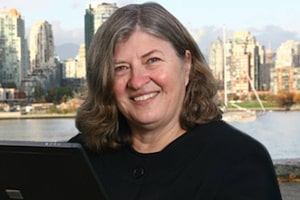
Elections BC says that anything related to a campaign has to be reported publicly. However, that reporting isn’t required until three months after the October, 2022, election.CHAD HIPOLITO/The Canadian Press
Although the next civic elections in B.C. are almost three years away, donors are already being asked to start giving to civic political parties, a move prompting at least one party to establish a new policy on reporting contributions on an annual basis.
The fundraising push has already started in Surrey and Vancouver, as campaigns deal with the new provincial rules brought in just before the October, 2018, civic election that banned corporate and union donations and limited individual contributions to $1,200.
Elections BC says that anything related to a campaign has to be reported publicly. However, that reporting isn’t required until three months after the October, 2022, election.
“Candidates can receive campaign contributions at any time, including outside of an election year,” Andrew Watson, the spokesman for Elections BC, said in an e-mail. “The candidate reports these contributions after the election. To be clear, this would include money raised for campaign activities occurring now, such as raising money to produce a video to introduce a candidate to voters.”
But it’s unclear whether money collected now falls into the category of “campaign expenses,” which would mean it has to be reported in the postelection financial-disclosure report, or whether it can be called “operating expenses," which don’t have to be reported.
Vancouver’s Non-Partisan Association was raising money that way months before the October, 2018, election. Provincial NDP Housing Minister Selina Robinson criticized the move as taking advantage of a “loophole,” but the government did nothing to change it.
Third-party donations are another grey area.
Since third-party contributions don’t have to be reported until the official election period, which begins only six weeks before the election, there are no regulations around that money in non-election years, meaning that corporations and unions – which are barred from official campaign donations – could theoretically donate to candidates in amounts above the current $1,200 limit for campaigns.
In an e-mail circulated to supporters of the Non-Partisan Association and obtained by The Globe and Mail, Peter Armstrong, founder of the Rocky Mountaineer luxury train company, recently started soliciting donations for a possible new campaign by former NPA mayoral candidate Ken Sim, although he reminded people to stick to the $1,200 limit.
Green Party Councillor Adriane Carr says she is already hearing about fundraising efforts and that’s why her party made a recent decision that it will report anything that it raises on an annual basis, even though that isn’t required by provincial law.
“The legislation is silent on the other years and that’s a bad thing,” said Ms. Carr, whose party recently held a fundraising gala. Those donations will appear in the party’s annual report for 2019.
Independent Vancouver Mayor Kennedy Stewart has been getting donations already, said his chief of staff, Neil Monckton.
He acknowledged that some donors “came with their chequebooks” to a November dinner the Mayor held at the Wall Centre, operated by one of the city’s most prominent civic-political donors, Peter Wall, when the mayor announced he would be running again in the 2022 election.
He said the mayor is considering whether to issue annual reports between now and the next election on what he has raised.
Mr. Stewart has been waiting to see what happens with a review Elections BC is supposed to be doing of the last election, when there were numerous complaints about problems, loopholes and gray areas in the new rules.
In Surrey, Mayor Doug McCallum’s office acknowledged “fundraising is constantly ongoing,” but did not provide any other details requested about whether the mayor’s party, Safe Surrey Coalition, plans to provide public reports in advance of the election on what has been received.
In Vancouver, Green Party Councillor Pete Fry is introducing a motion at the next council meeting, asking councillors to push for a province-wide change to the leeway now allowed candidates to raise money as “operating expenses” that don’t have to be declared.
Mr. Fry said that the NPA’s current head of fundraising is former Rebel Media bureau chief Chris Wilson, part of the very-right-of-centre group that some NPA members say has taken over the once-centrist party. With the unclear rules now in place, people won’t know who is willing to pay for the NPA’s new direction, he said.
The NPA did not respond to requests for an interview about campaign-finance issues.
 Frances Bula
Frances Bula